relax and unwind
Explore Abilene
at Ridgeview RV Resort

First Class Amenities
Experience resort-quality comfort, sparkling clean facilities, high-speed WiFi, and more.

Preimum RV Sites
Enjoy clean, big-rig friendly, concrete RV pads with lush green lawns.

Laundry facilities
Keep your wardrobe fresh with our two on-site laundry facilities.
Welcome to Abilene's Premier RV Park
Discover the perfect West Texas RV experience at Ridgeview RV Resort, nestled in the peaceful landscape of Abilene, Texas. As one of the area’s premier resort-style RV destinations, we offer a welcoming community atmosphere paired with modern comforts and exceptional convenience.
Our 147 full-hookup RV sites feature level pads, spacious layouts, and thoughtfully landscaped grounds that blend comfort with the beauty of open Texas skies. Whether you’re stopping in for a short visit, working remotely, or settling in for a long-term stay, Ridgeview RV Resort delivers the ideal balance of relaxation, accessibility, and resort-level amenities.
From big rig-friendly accommodations to high-speed Wi-Fi, pristine facilities, and a variety of on-site activities, Ridgeview RV Resort is your gateway to the best of Abilene. Located just minutes from shopping, dining, hospitals, and universities, with easy access to I-20, you’ll enjoy both convenience and tranquility in one of West Texas’s most inviting RV communities.
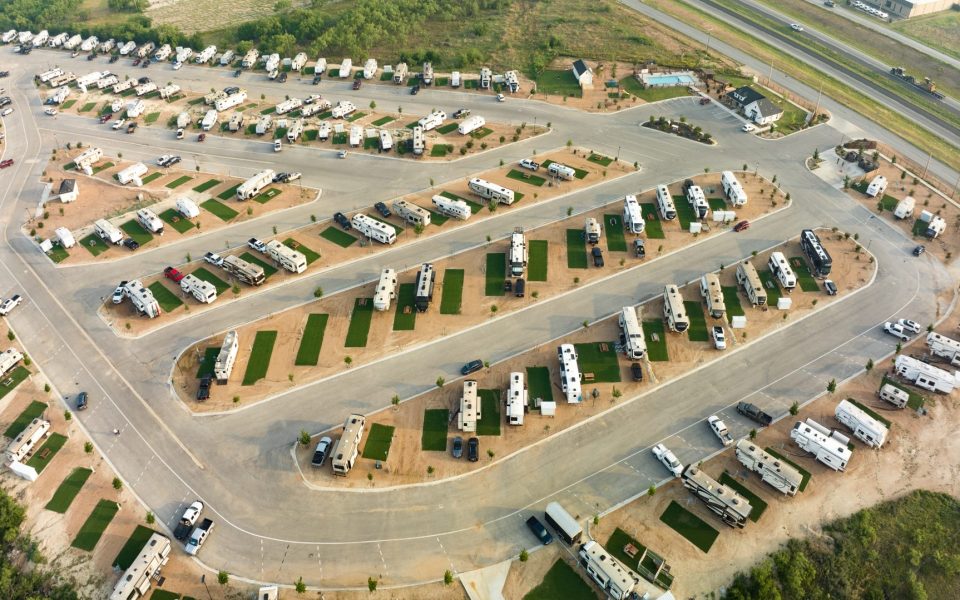
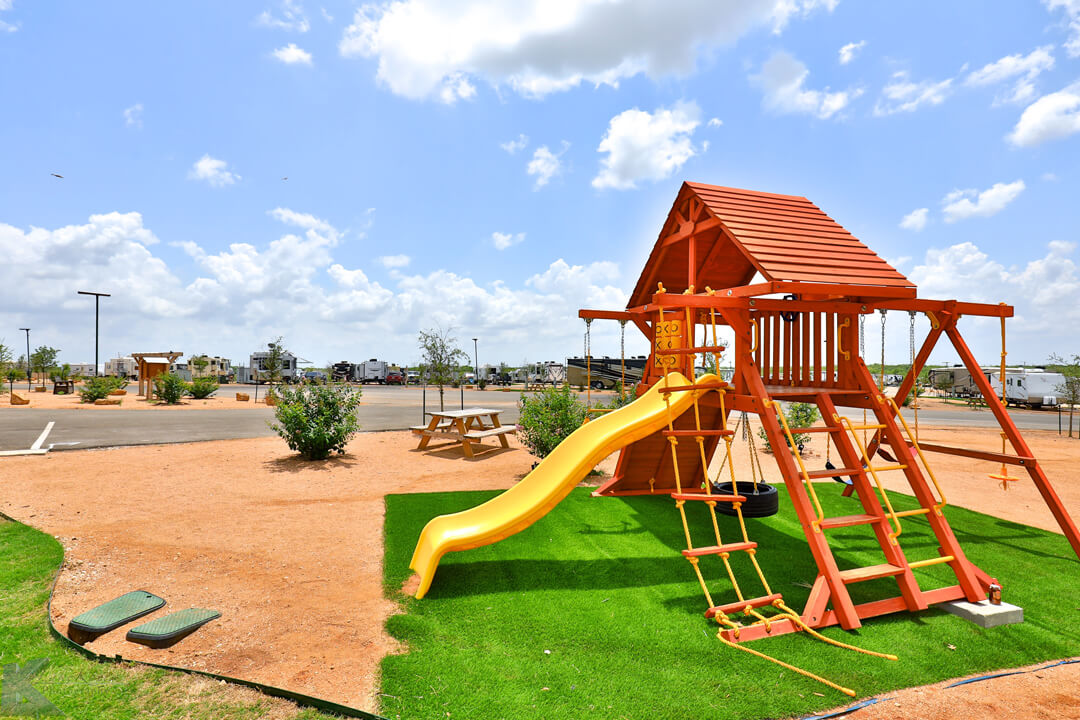



Adventures of a Lifetime
Memories for a Lifetime

147 Big-Rig Friendly RV Sites in Abilene, Texas
Every RV site at our Abilene RV park includes modern amenities designed for comfort and convenience.
Site Features:
30/50 amp electrical hookups to power all your RV systems
Full water and sewer hookups
Spacious parking pads for easy setup
Large grassy yards with growing trees
Free high-speed WiFi for convenient streaming
Accommodates RVs up to 65' long
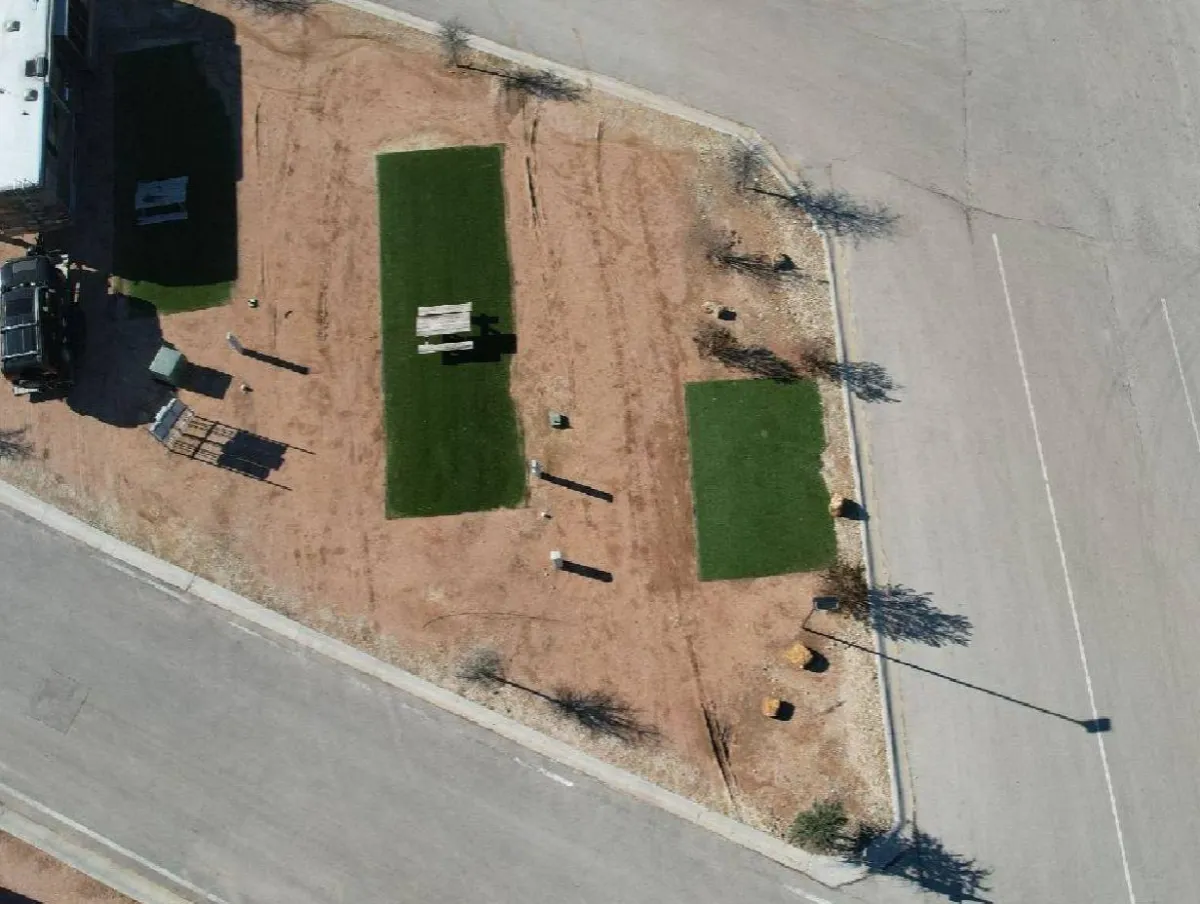

Premium Pull-Thru
Sites 20, 31, 43, 44, 55
Spacious pads with Extra room and privacy ideal for large RVs.
Perfect for large RVs, fifth wheels, and motorhomes, no backing required
$58/Night
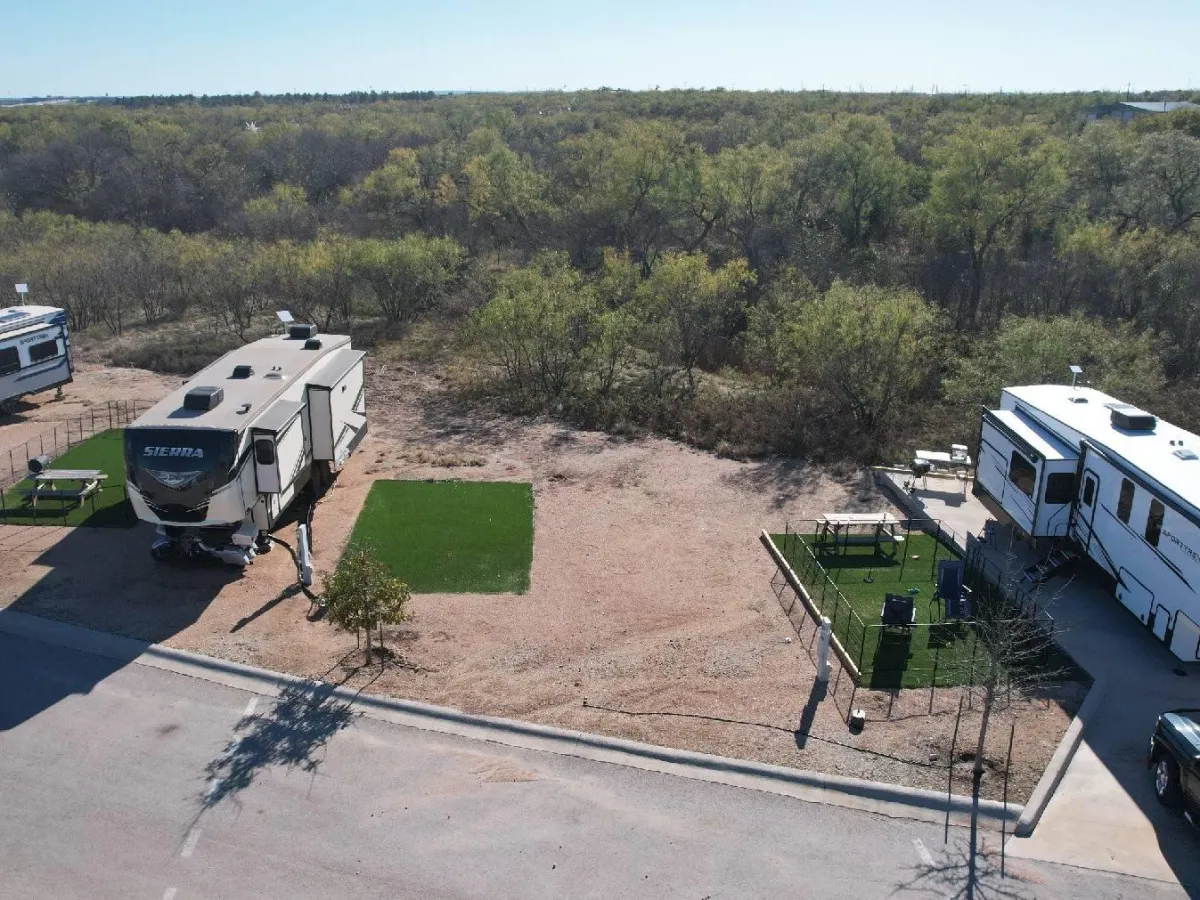

Premium Back-In
Sites 11-19, 125-148
Full-hookup RV sites backed up to peaceful tree-line views
Perfect blend of comfort and nature, close to resort amenities
$58/Night
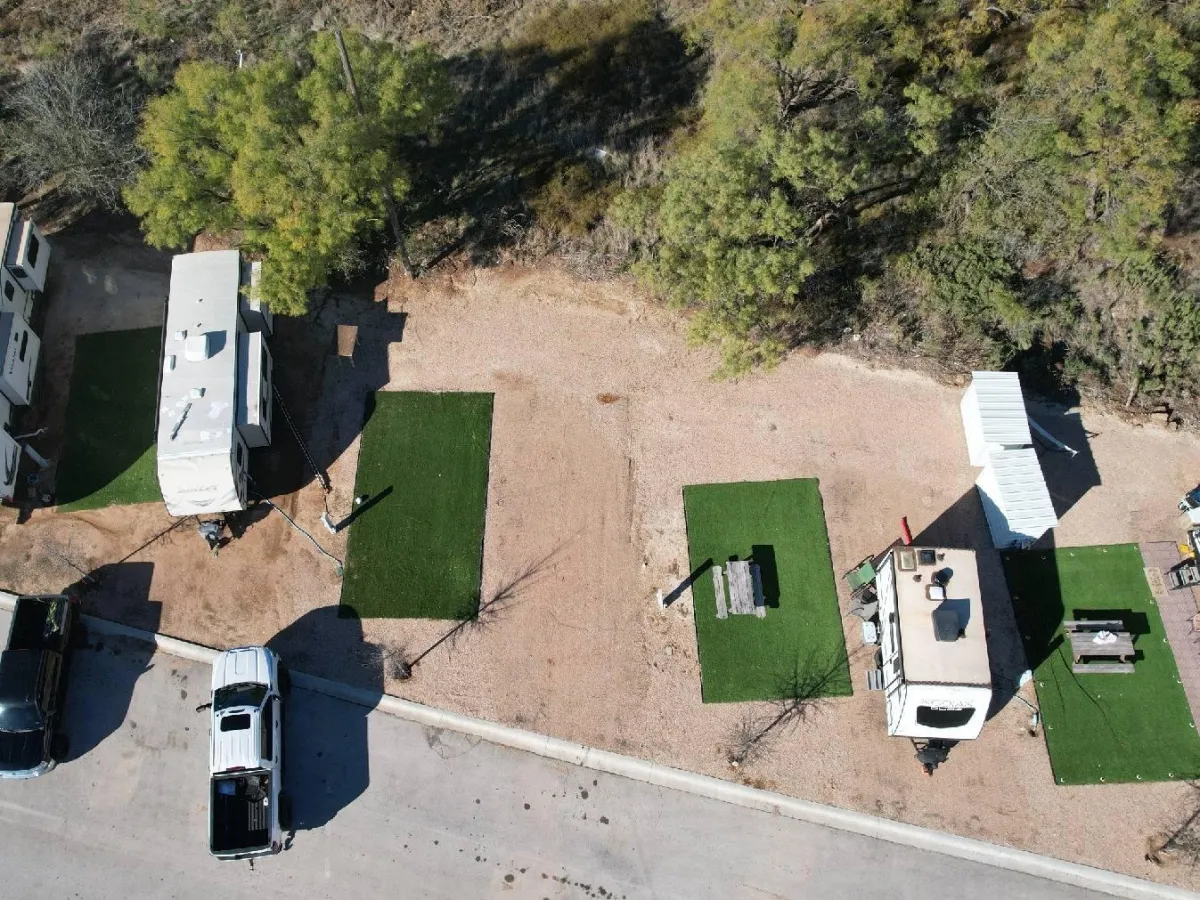

Deluxe Back-In
Sites 5-10, 56-67, 101-124
Spacious, full-hookup RV sites located in prime areas of the resort
Extra room and privacy ideal for large RVs, fifth wheels, and motorhomes
$53/Night
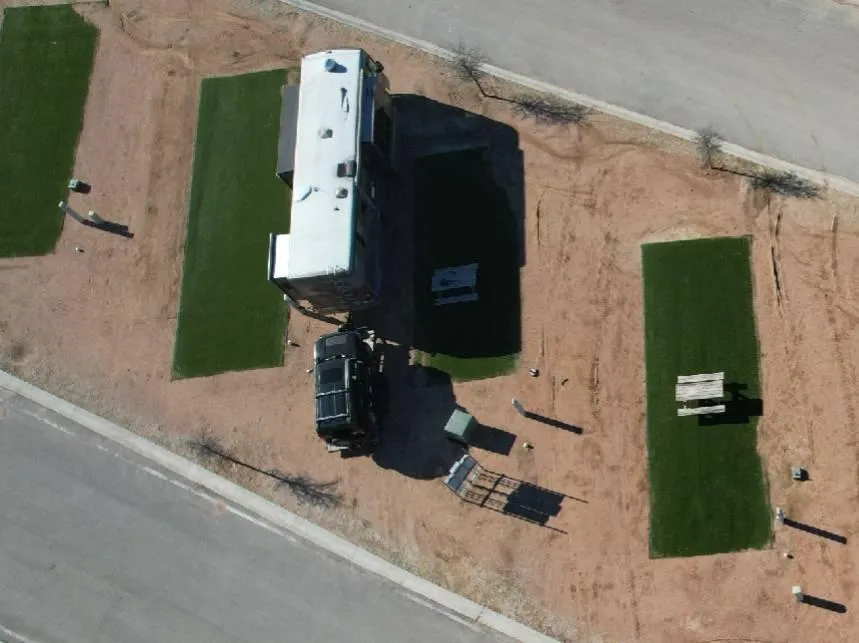

Deluxe Pull-Thru
Sites 21-30, 32-42, 45
Convenient full-hookup RV sites designed for easy pull-in and pull-out access
Perfect for large RVs, fifth wheels, and motorhomes, no backing required
$53/Night
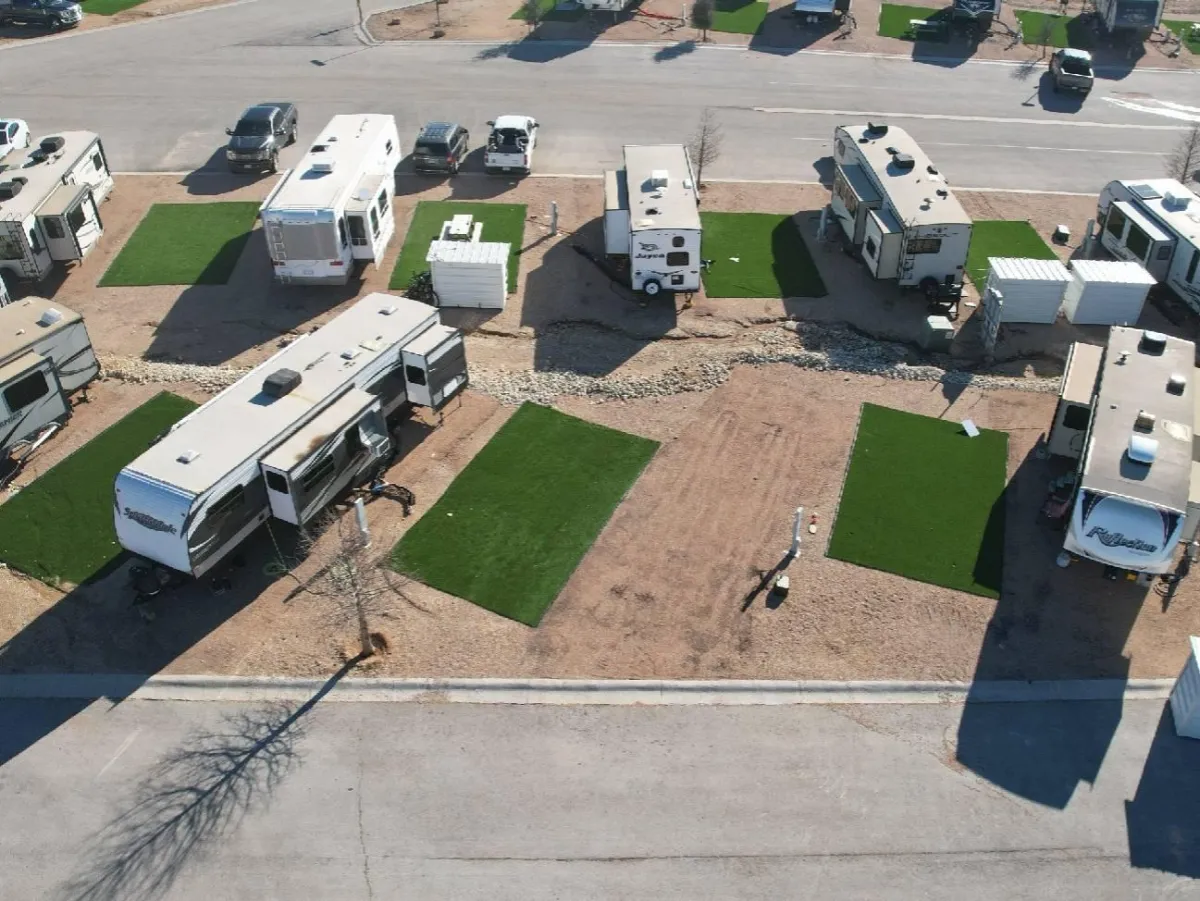

Standard Back-In
Sites 2-4, 68-100
Reliable 40-foot full-hookup RV sites offering great value and comfort
Easy access to park amenities including restrooms, pool, and recreation areas
$40/Night
Why Stay at Ridgeview RV Resort?
Ridgeview RV Resort combines modern amenities with spacious, easy-access sites, making it perfect for travelers seeking comfort, convenience, and a Big Rig Friendly environment.
Resort Amenities Include:

Free High-Speed WiFi
Stay connected with complimentary WiFi throughout the entire RV park, perfect for remote workers

Sparkling Clean Swimming Pool
Splash and relax in our outdoor pool with a dedicated beach area perfect for young children

Fenced Dog Park
Let your furry companions run and play in our secure, spacious dog park

Clean Restrooms & Showers
Immaculately maintained facilities with hot showers. Keep clothes fresh with our clean, well-maintained laundry room

Laundry Facilities
Stay fresh on the road with our two spacious laundry centers, each equipped with reliable machines for hassle-free washing.

On-Site Playground
Families will love our convenient playground, where kids can burn off energy and enjoy outdoor adventure during your stay.
Where to find us
Ridgeview RV Resort is ideally located on Abilene’s east side, offering quick access from I-20 while still feeling calm and tucked away. Easy to reach yet peacefully removed, it’s the perfect place to relax and enjoy the best of West Texas living.
Ridgeview RV Resort
Testimonials
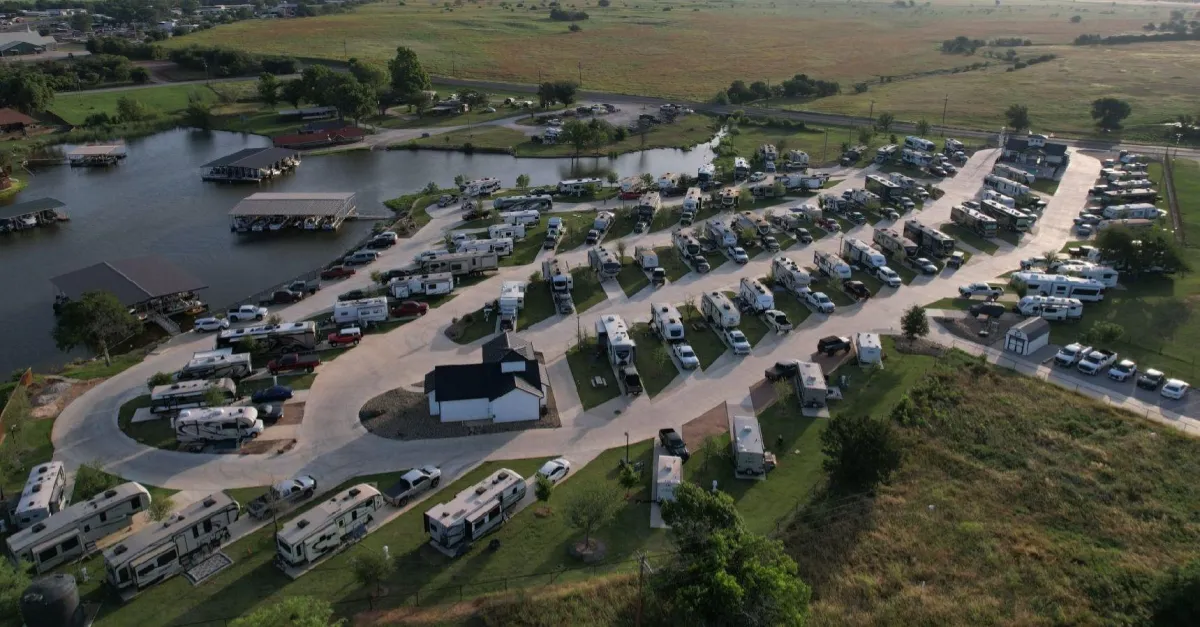

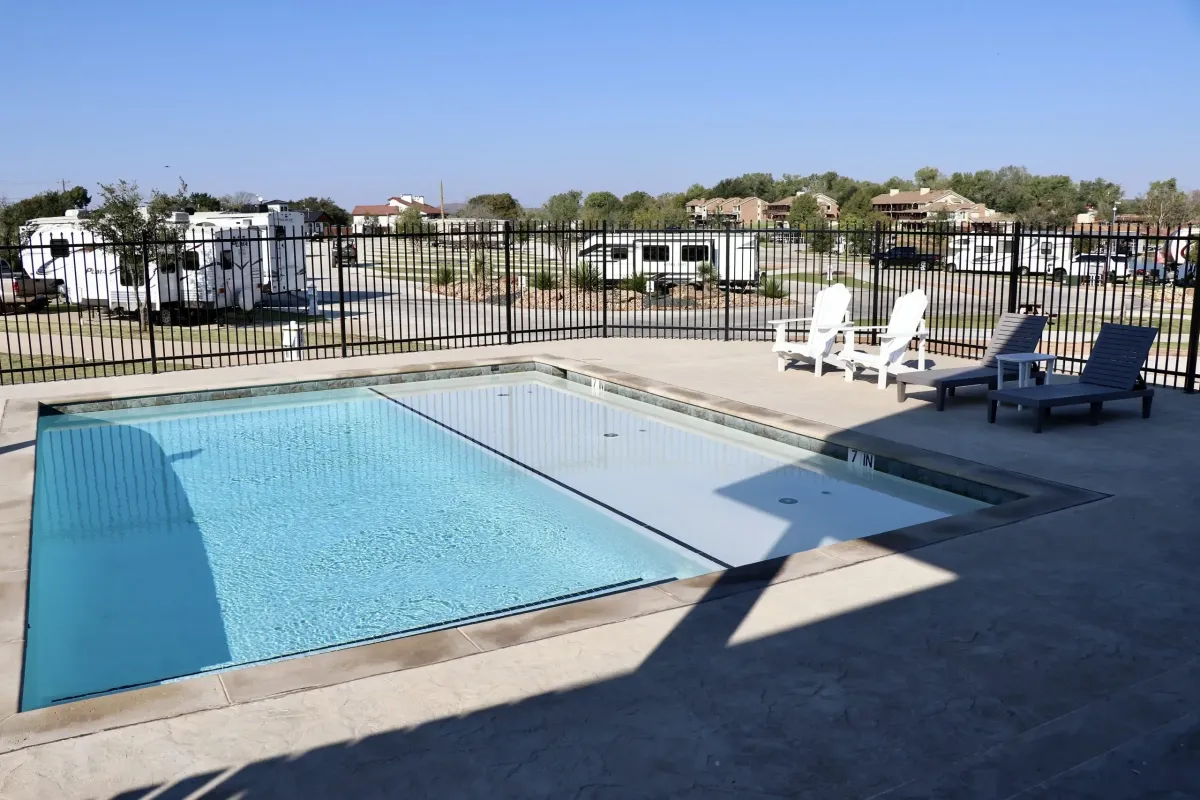
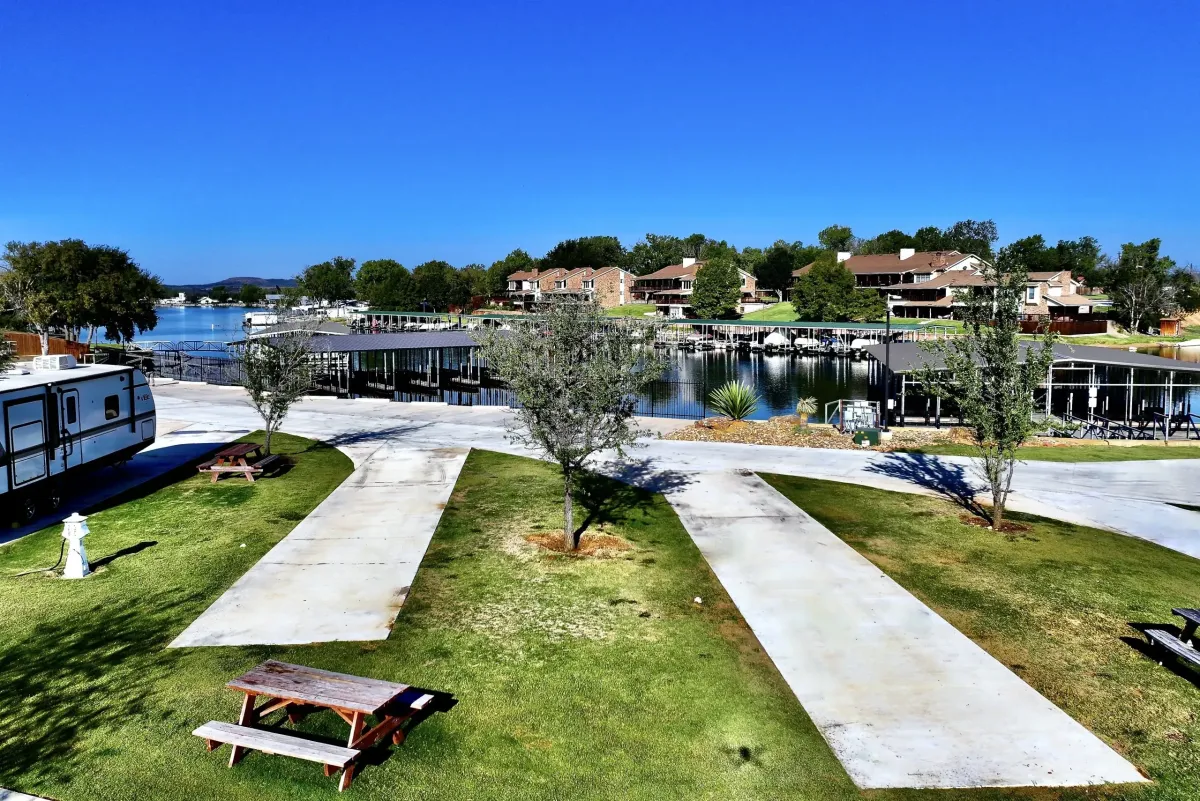
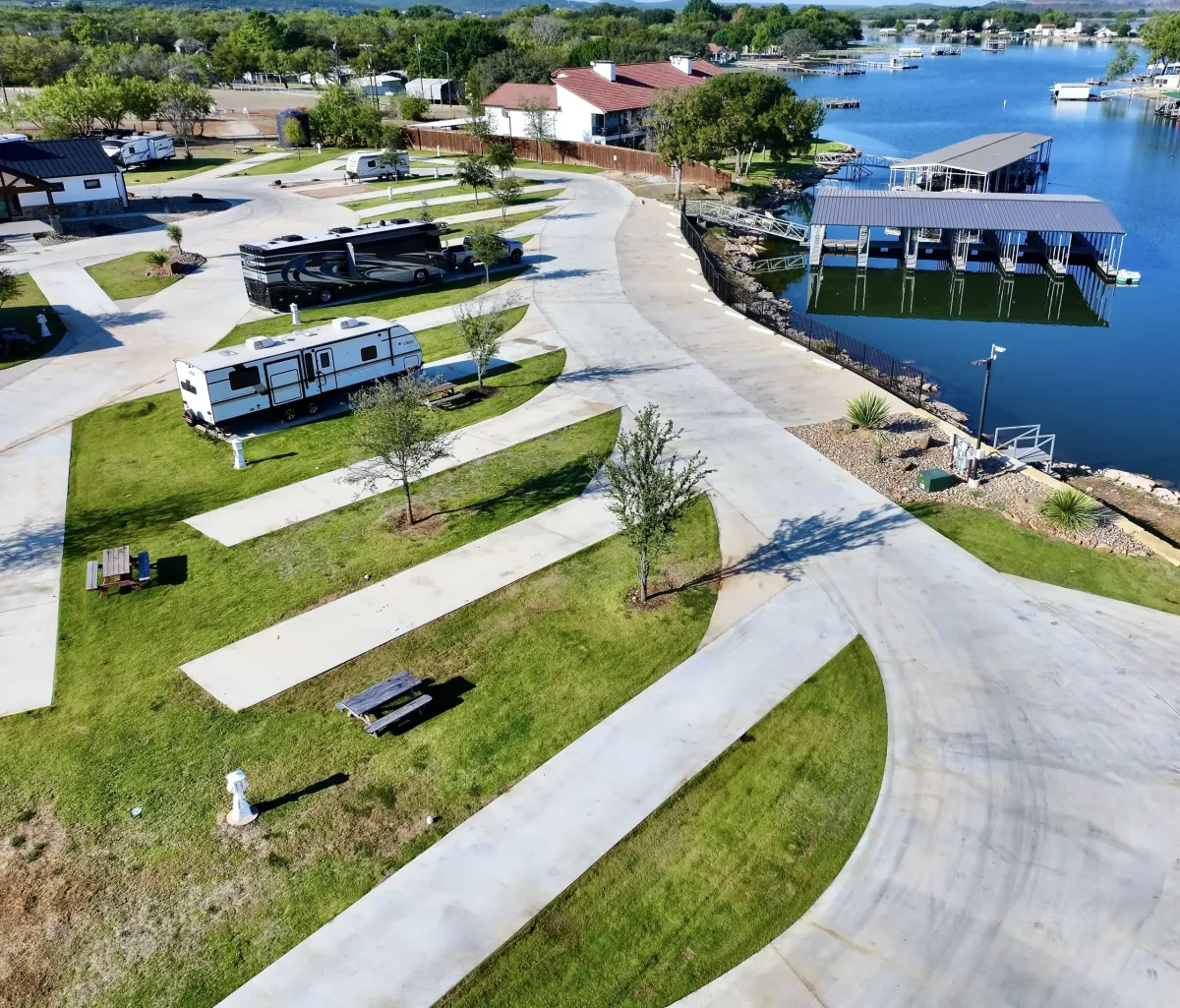

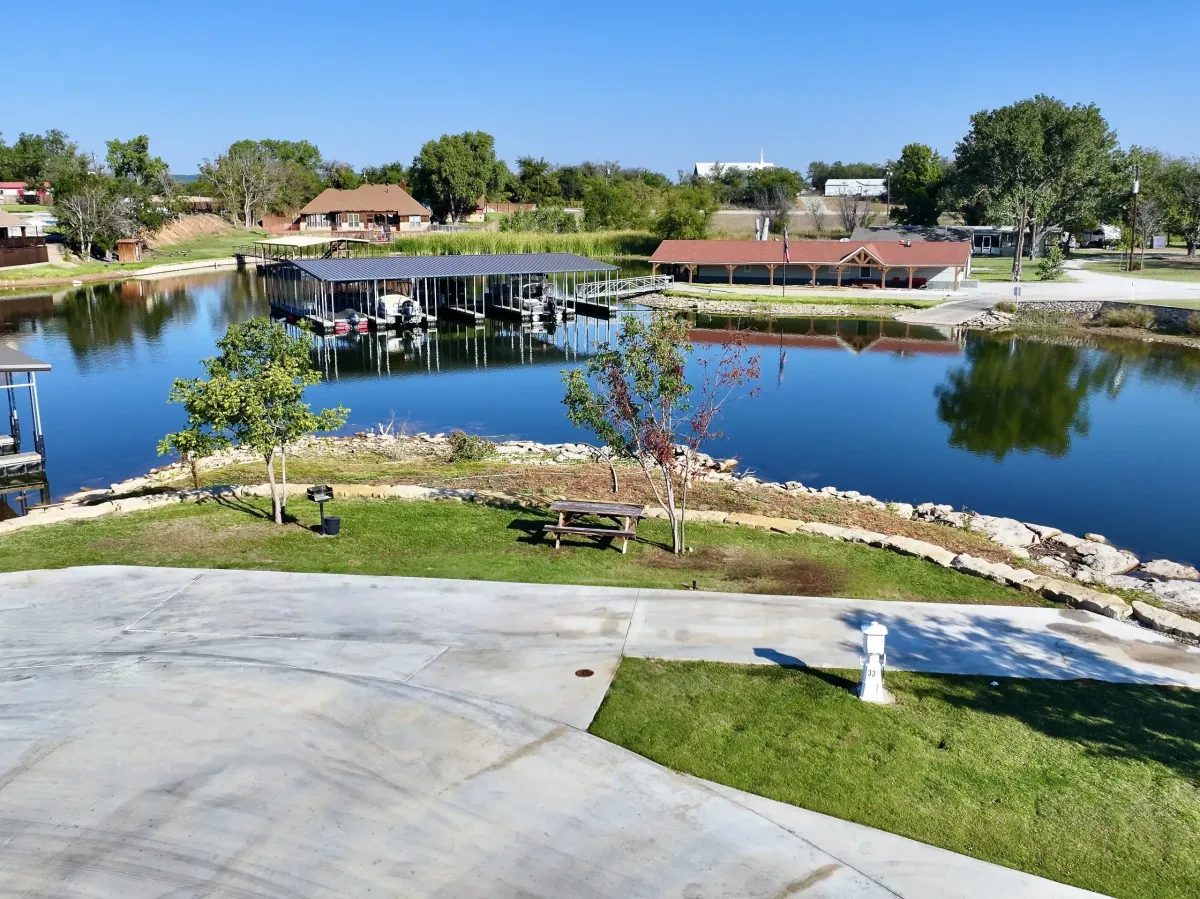
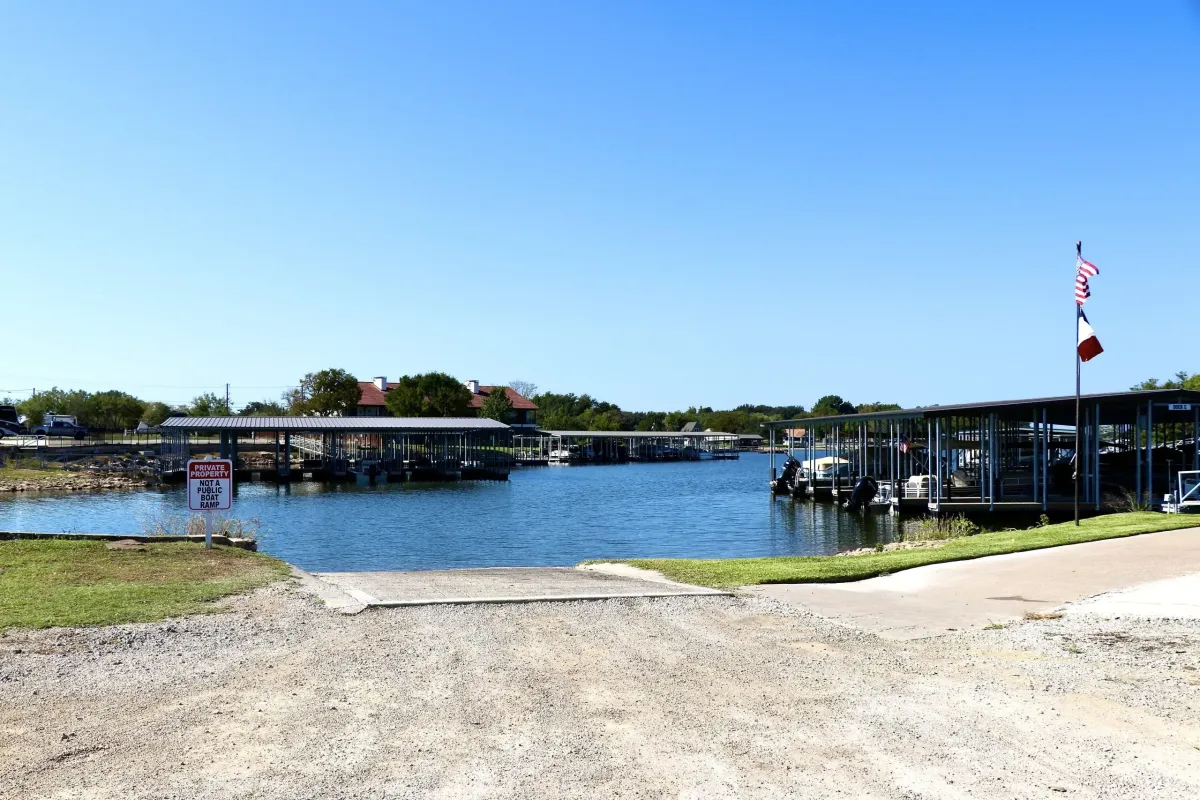
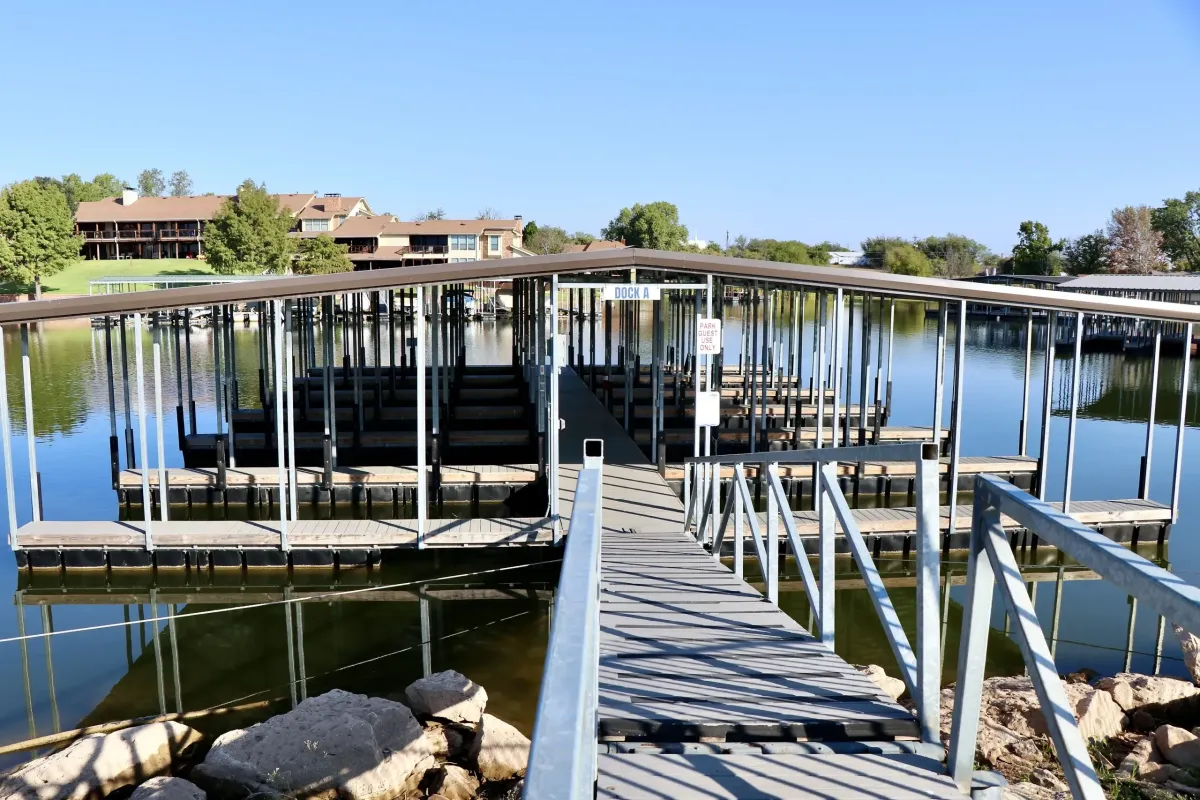

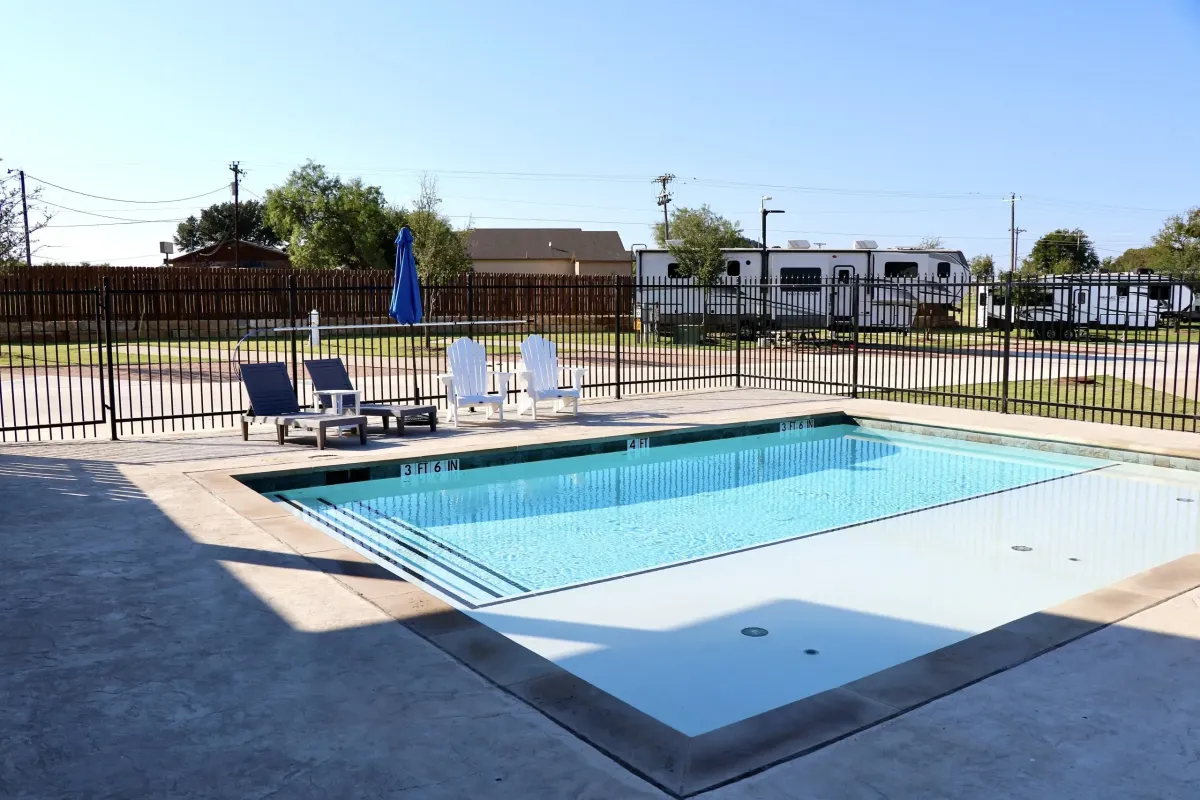




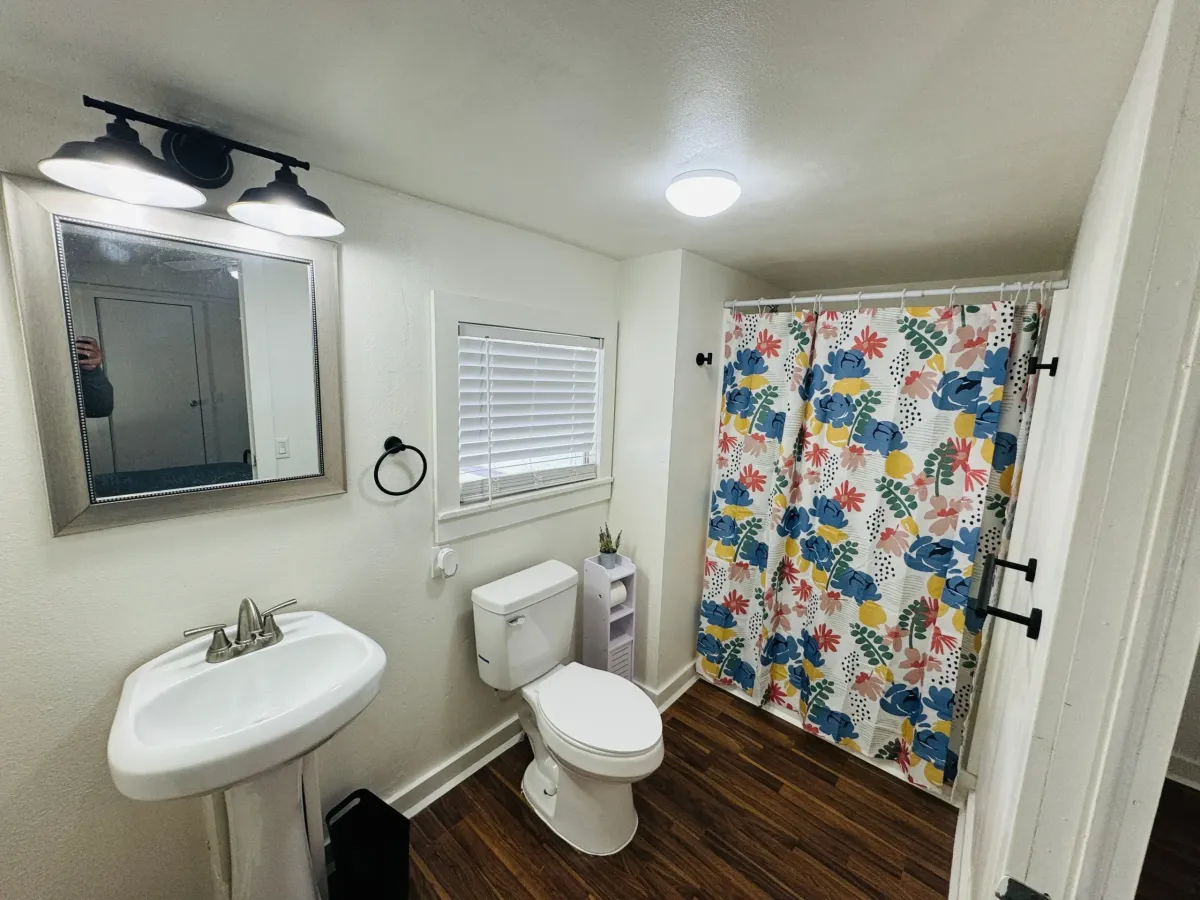


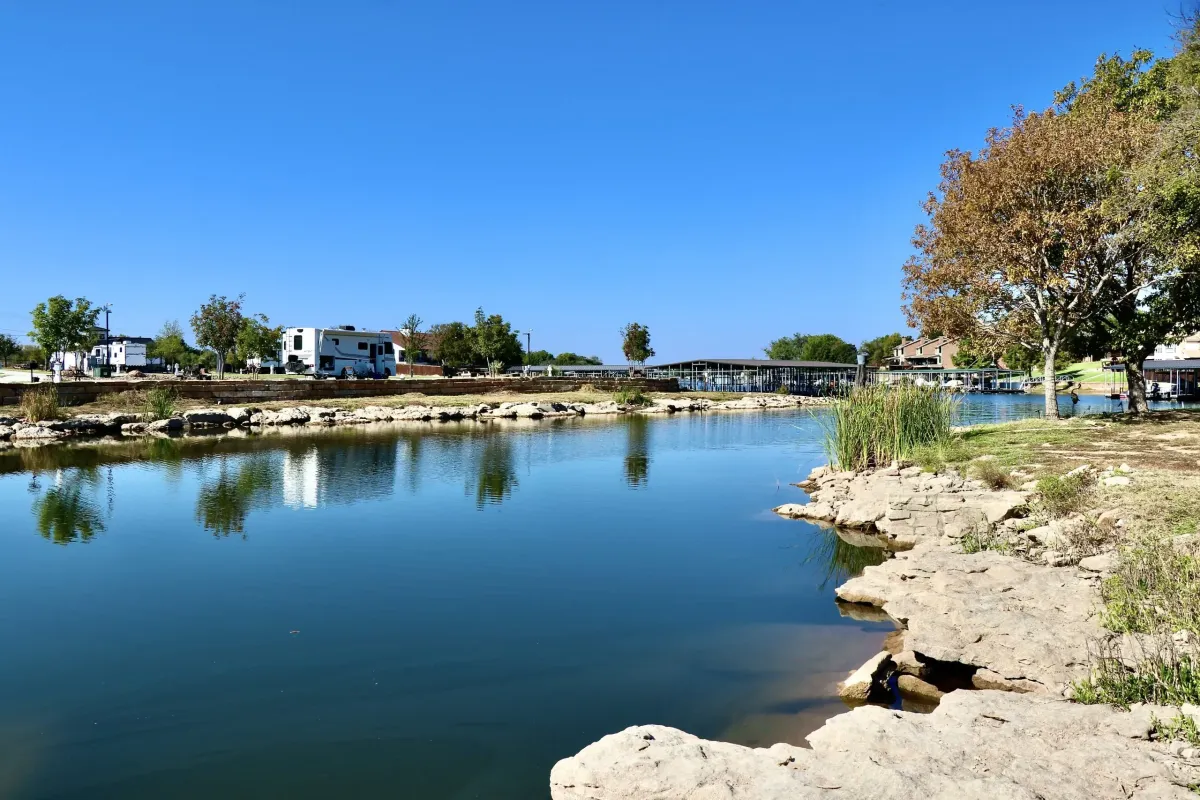
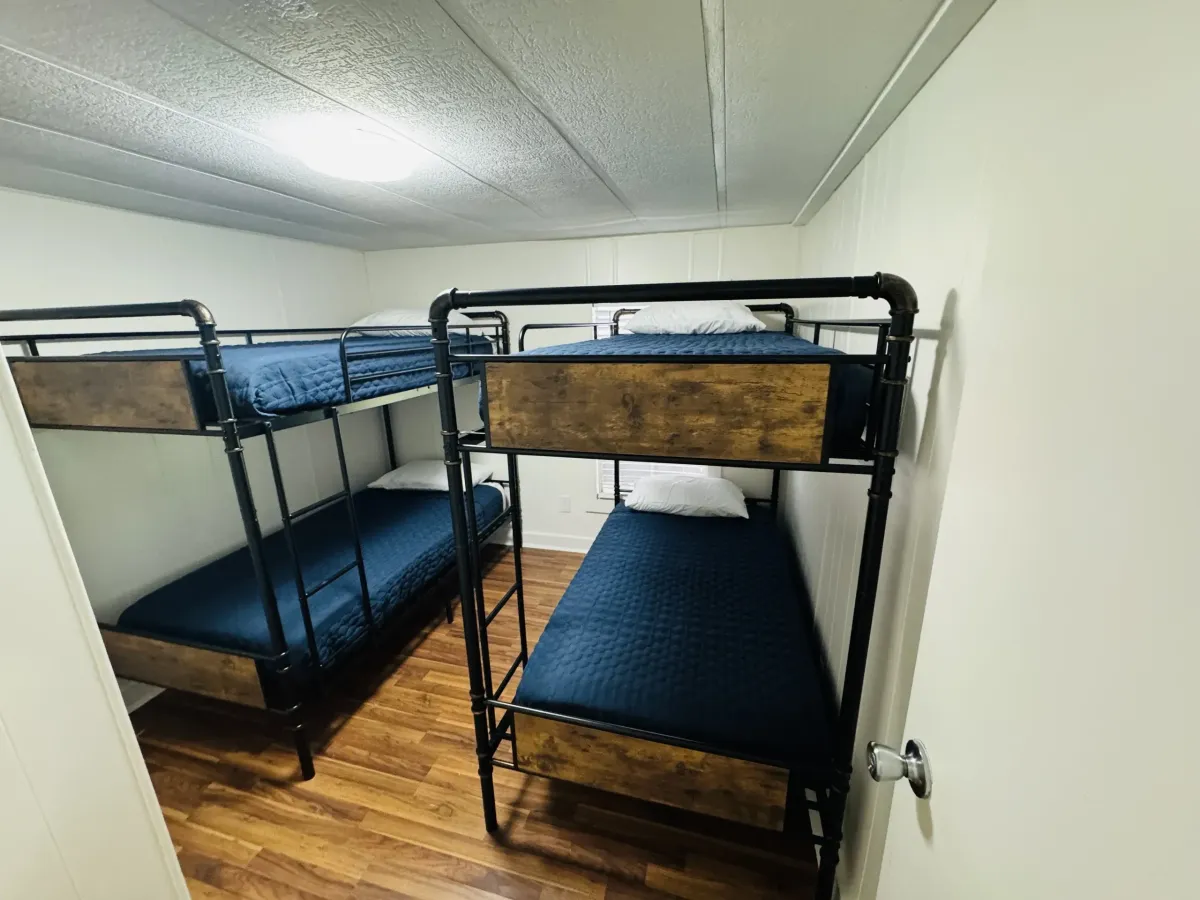



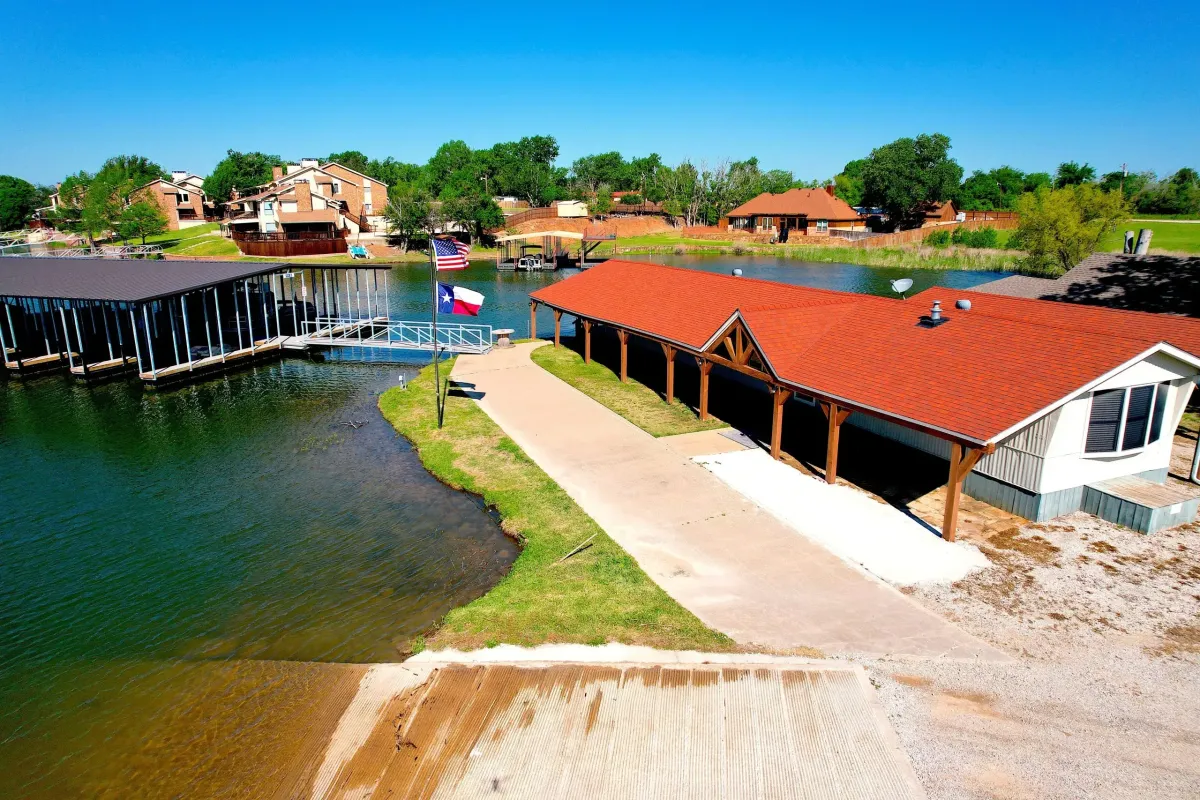
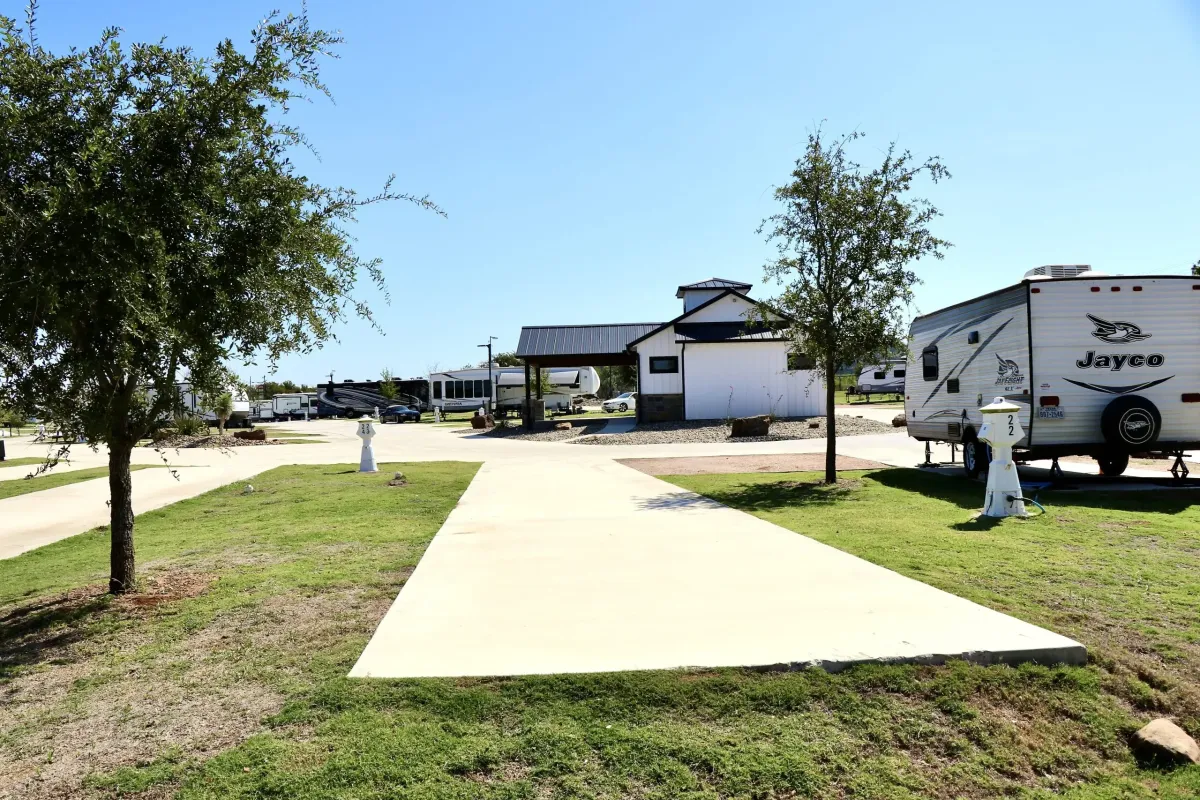

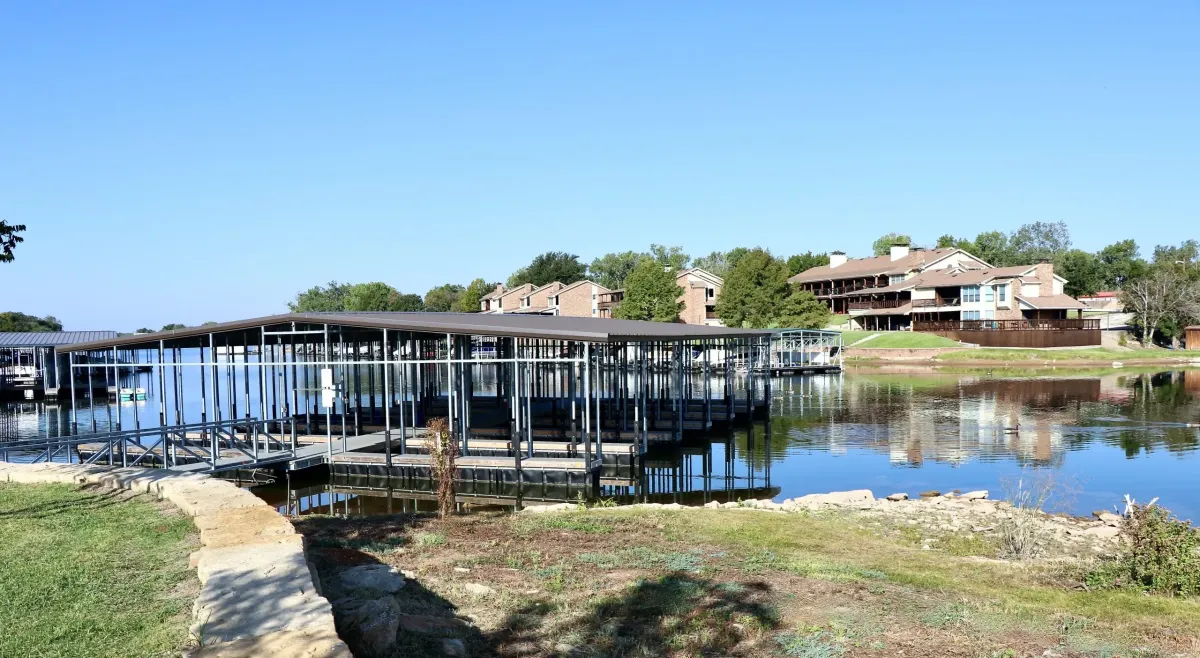

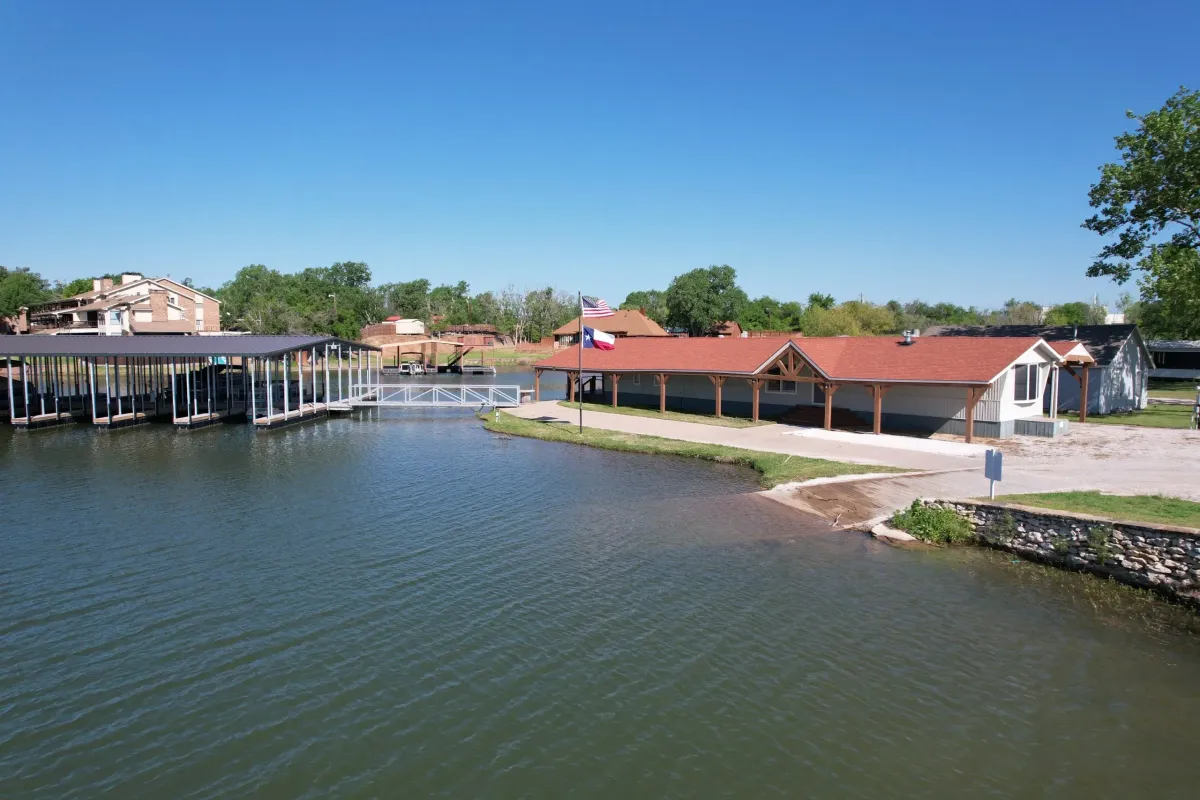

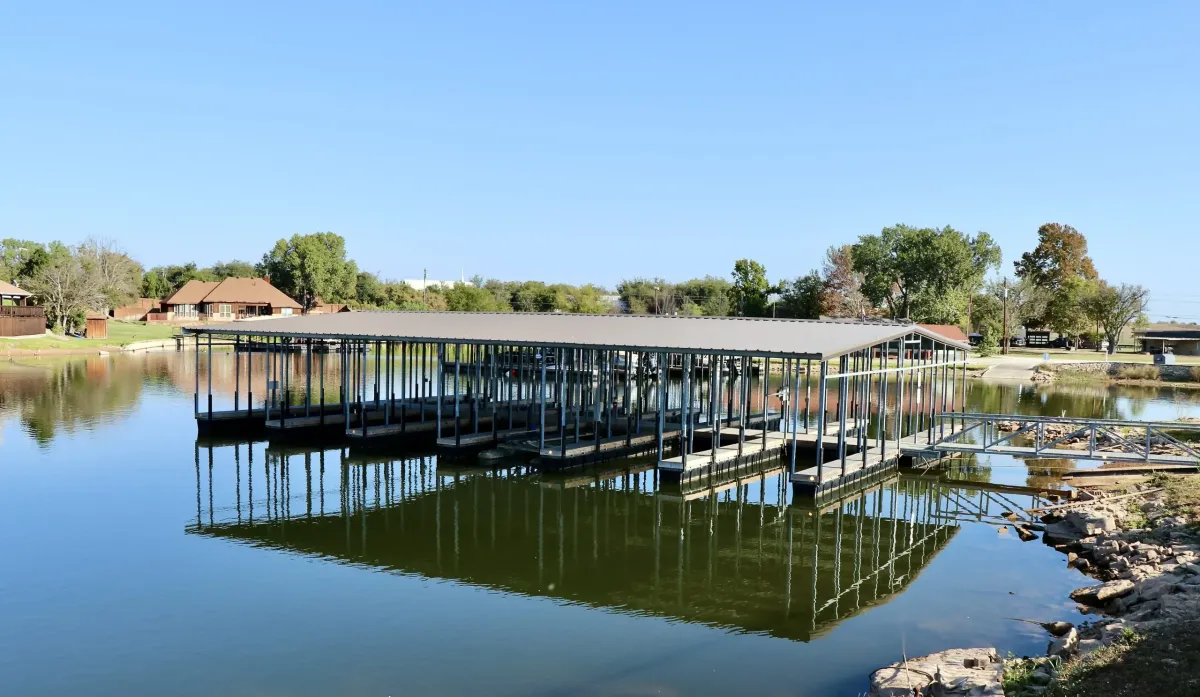
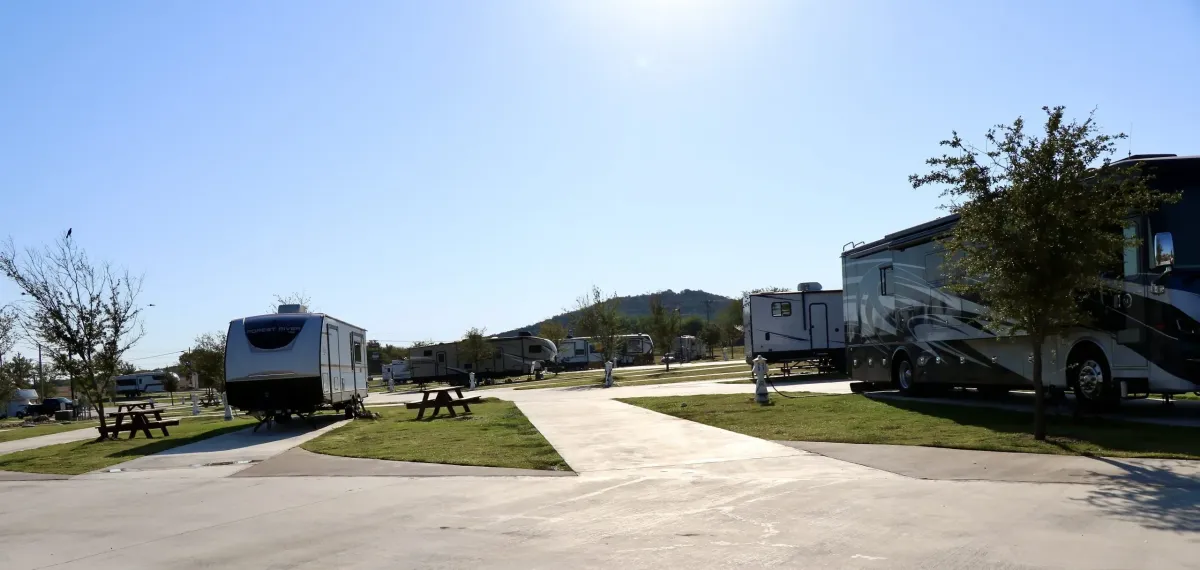


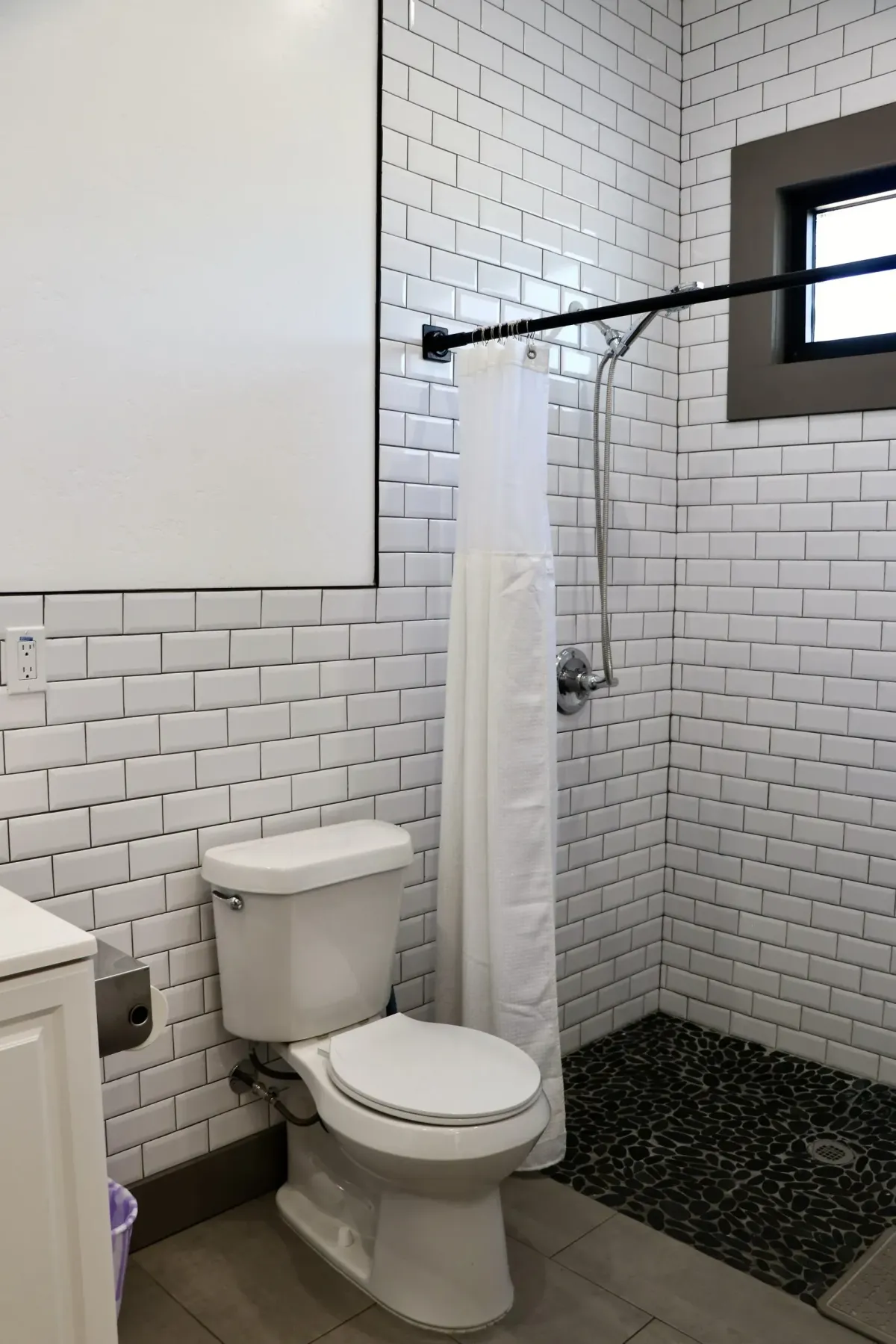
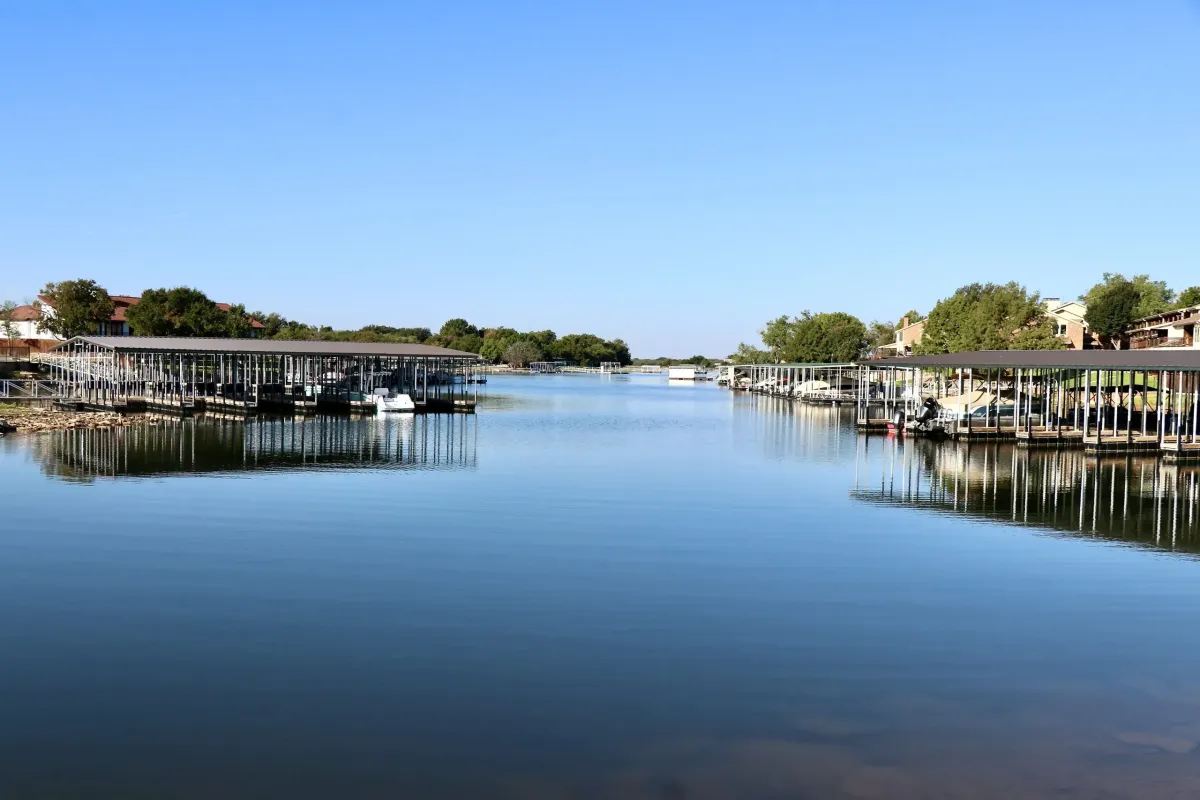


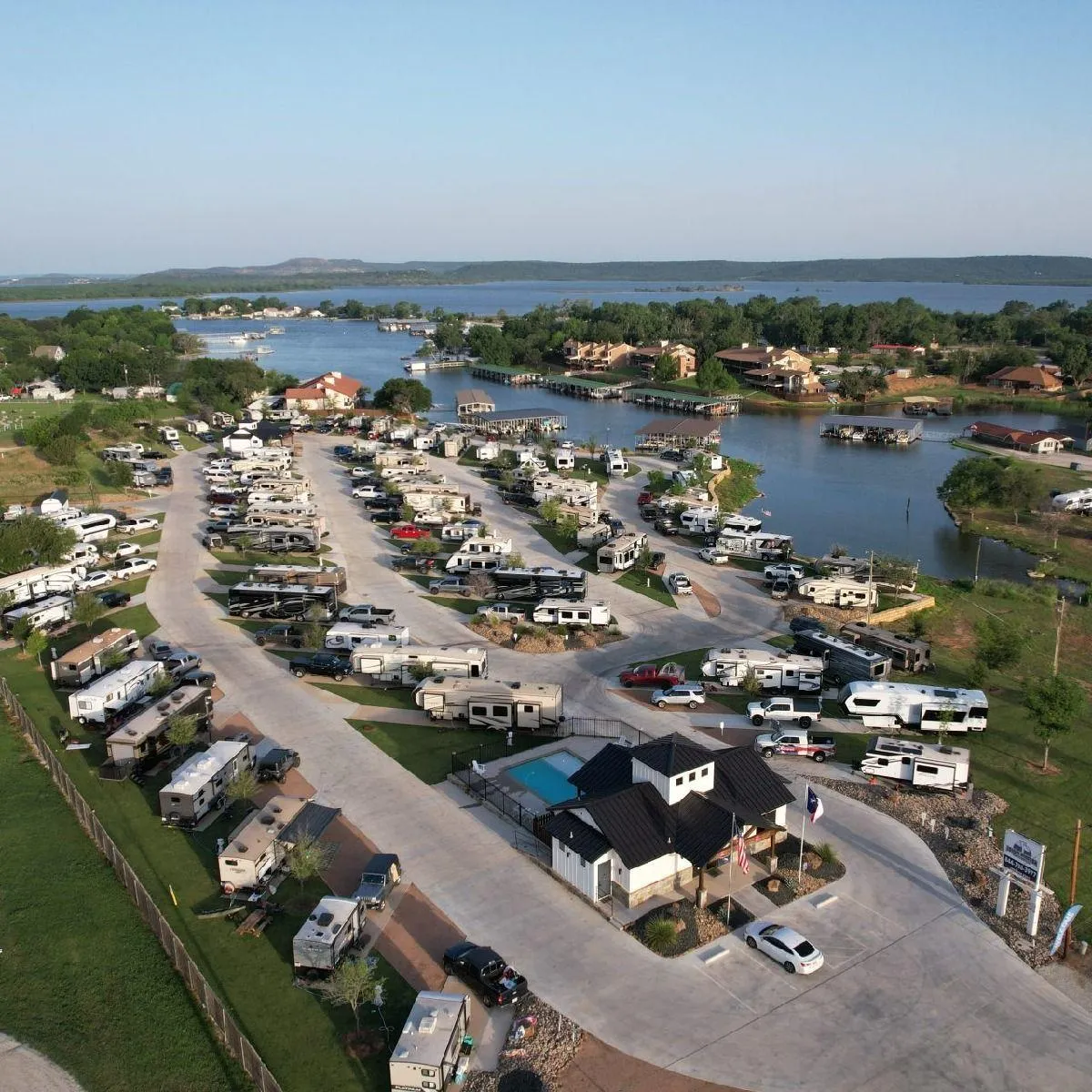
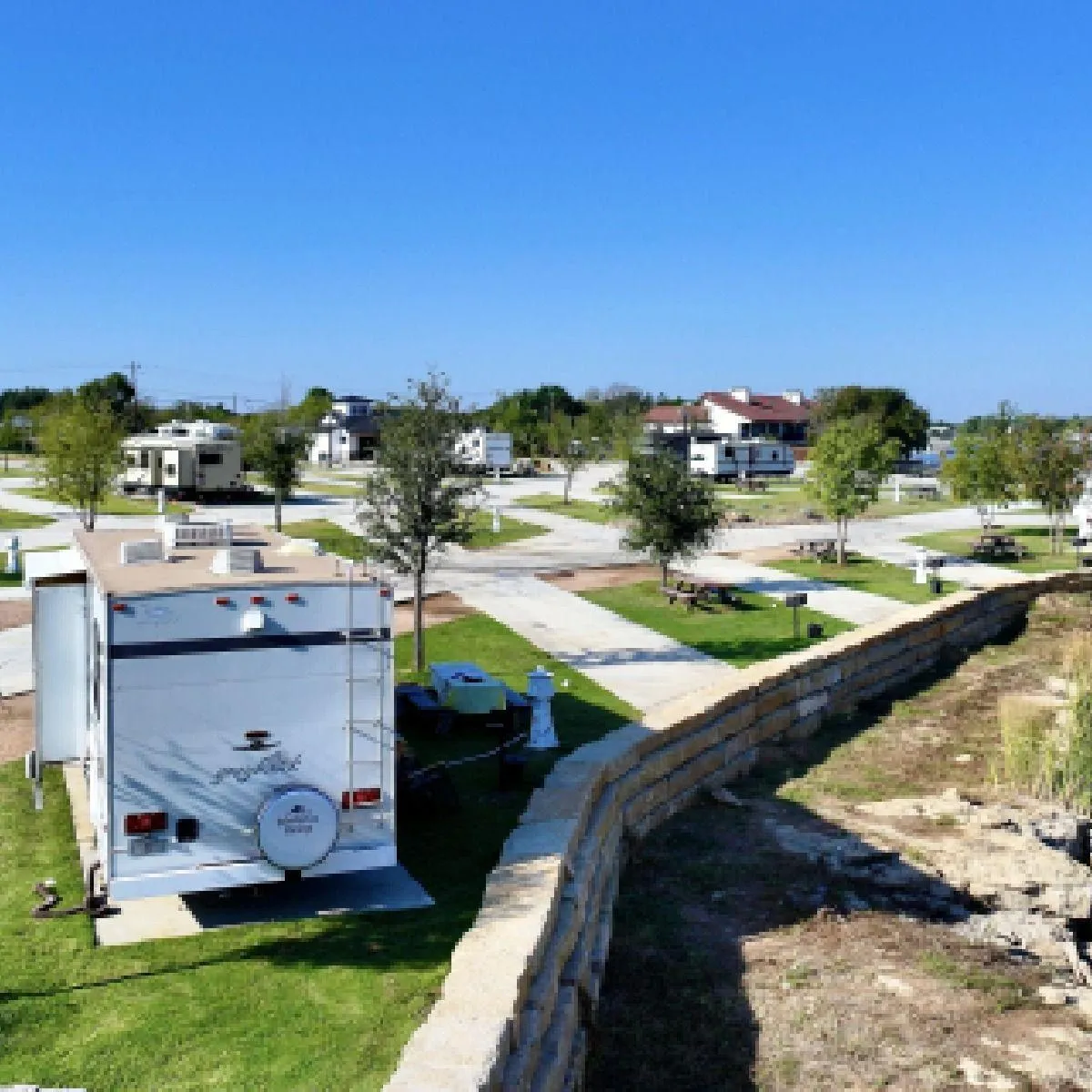
Frequently Asked Questions About Our Texas RV Park
Can you accommodate big rigs and Class A motorhomes?
A: Absolutely! Ridgeview RV Resort is big-rig friendly with large, easy-access sites designed for long Class A motorhomes, fifth wheels, and travel trailers. Each site includes a spacious concrete pad that makes setting up stable and convenient. Smooth paved roads throughout the park make maneuvering and parking simple for larger rigs.
Does the resort have a playground for children?
A: Yes! Our family-friendly playground is designed for safe outdoor fun, letting kids climb, explore, and play just steps from your RV site.
Is there security at the RV resort?
A: Yes, guest safety is a top priority at Ridgeview RV Resort. The entire property is fenced and monitored with security cameras, providing peace of mind for all guests. Whether you’re staying for a night or several months, you can enjoy the resort’s amenities knowing that the environment is secure, well-lit, and professionally managed.
What's included in a full hookup site?
A: Yes! Every site comes with full hookups, including fresh water, sewer, and electricity. In addition, the resort offers free high-speed Wi-Fi across the property, allowing guests to stay connected for work, entertainment, or streaming while enjoying the quiet, relaxing environment of Abilene.
Are pets allowed at your RV park?
A: Absolutely! We are a pet-friendly RV resort, and we welcome dogs of all sizes. For your convenience, we provide a fenced dog park where pets can safely run, play, and socialize off-leash. We encourage families and pet owners to enjoy the resort together while ensuring a safe and clean environment for everyone.
Do you offer monthly rates for extended stays?
A: Absolutely! We welcome monthly and extended stays, offering full-hookup sites, high-speed Wi-Fi, and resort-style amenities that make longer visits comfortable and convenient. Many guests choose Ridgeview RV Resort for seasonal stays, extended vacations, or even remote work, taking advantage of our peaceful atmosphere and community-friendly environment.
How far is your RV park from major cities?
A: Ridgeview RV Resort is conveniently located in Abilene, Texas, just off I-20. Dallas-Fort Worth is about 180 miles (3 hours), Fort Worth around 170 miles (3 hours), Lubbock roughly 160 miles, and Austin approximately 250 miles. This prime location lets guests enjoy our peaceful resort while staying within easy reach of major Texas cities.
Is Ridgeview RV Resort suitable for events or gatherings?
A: Definitely! Our landscaped pergolas and community areas provide ideal spaces for small gatherings, family events, or celebrations. Whether you’re hosting a birthday party, family reunion, or casual get-together, the resort offers a scenic and safe environment to enjoy memorable moments with friends and loved ones.
Is there a dump station if I need to empty tanks mid-stay?
A: Ridgeview RV Resort does not have a separate dump station because all of our sites are full-hookup with direct sewer connections. This means you can easily empty your black and gray tanks right at your own site, making your stay simple, convenient, and hassle-free.
Do you have WiFi at the RV sites?
A: Yes! Ridgeview RV Resort offers free high-speed Wi-Fi available throughout the entire property, including every RV site. Whether you’re working remotely, streaming movies, or staying in touch with family and friends, our reliable internet ensures you stay connected while enjoying the comfort and convenience of our resort.
Can RVers work remotely at Ridgeview RV Resort?
A: Yes! Ridgeview RV Resort is perfect for digital nomads and remote workers. Our free high-speed Wi-Fi and quiet environment make it easy to stay productive while enjoying the outdoors. Many guests take advantage of our resort-style amenities and community spaces to balance work and leisure while staying connected.
What communal areas are available at Ridgeview RV Resort?
A: Ridgeview RV Resort offers several well-designed communal areas for guests to relax, socialize, and enjoy the outdoors. You’ll find shaded pergolas, picnic tables, and a community fire pit, perfect for gatherings with family and friends. These spaces provide a welcoming, resort-style atmosphere where guests can connect, unwind, and make the most of their stay.
Ridgeview RV Blog and Travel Tips
No blogs found


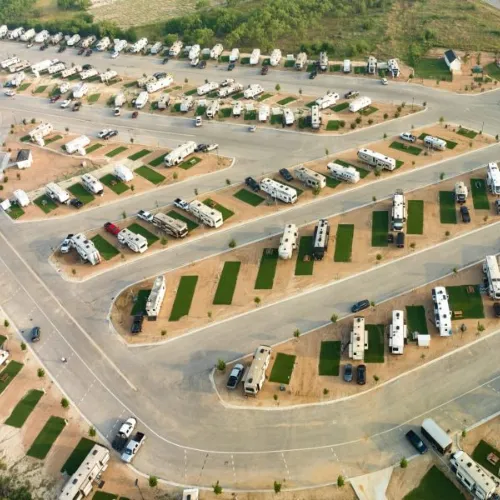

Get the Latest Discounts and Travel Tips from Ridgeview RV Resort!
Subscribe to our newsletter to receive the latest travel information and exclusive offers.

